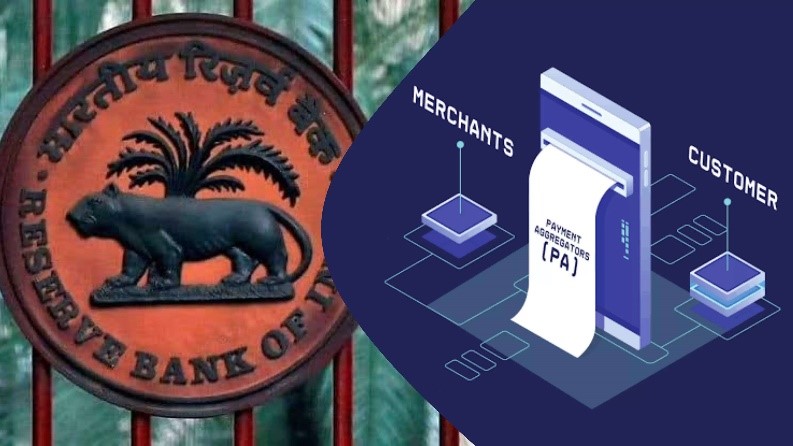
Disclaimer: Copyright infringement not intended.
In News
- RBI wants to improve rules for offline payment aggregators (PAs) handling face-to-face transactions. They released two papers for public feedback.
- First Paper: Focuses on how offline PAs work.
- Second Paper: Proposes stricter rules for safety. It includes better checks for knowing customers (KYC), checking merchants, and managing money in Escrow accounts.
- Feedback: RBI wants people to share their thoughts by May 31.
ALL ABOUT PAYMENT AGGREGATORS: https://www.iasgyan.in/daily-current-affairs/payment-aggregator#:~:text=A%20payment%20aggregator%20in%20India,require%20unique%20authorization%20from%20RBI.
What exactly are the norms about?
- Extension of Regulations: The RBI wants to extend its rules for payment aggregators (PAs) from online to offline transactions, like face-to-face payments.
- Reason for Extension: RBI sees similarities in how PAs operate online and offline. It wants to regulate both in a similar way to improve standards for data collection and storage.
- Learning from PPBL Crisis: The RBI is also learning from past mistakes, like the Paytm Payments Bank (PPBL) crisis. PPBL faced issues with KYC rules and illegal activities, like online gambling, which led to a penalty. The RBI wants to prevent such problems in the future by strengthening regulations for PAs.
Is registration with the RBI being made compulsory?
Compulsory Registration:
- Non-bank payment aggregators (PAs) and their offline extensions must register with RBI.
- Banks providing physical PA services do not need separate authorization but must follow new instructions within three months.
- Non-banking entities offering PA services at the point of sale (PoS) must inform RBI within 60 days of the circular to seek authorization.
Continued Operations:
- Entities can continue operations while seeking authorization.
- Non-banking entities providing PA services online must seek approval for existing offline PA activity within 60 days of the directive.
Compliance Requirements:
- PoS entities must adhere to guidelines on merchant on-boarding, customer grievance redressal, dispute management, technology recommendations, security, fraud prevention, and risk management within 3 months.
- Continued adherence to 2020 guidelines will be viewed positively for fresh registration.
Provisions for sustainability
Minimum Net Worth Requirement:
- Non-banking entities offering face-to-face transaction services must have a minimum net worth of ₹15 crore when applying.
- This requirement will increase to ₹25 crore by March 31, 2028.
- New applicants must meet the ₹25 crore net worth requirement by the end of the third financial year from when authorization is granted.
Closure of Operations:
- Existing offline operators unable to comply with the approval-seeking timeframe must cease operations by July 31, 2025.
- Banks failing to provide evidence of their application for authorization will be directed to close all accounts by the end of October the following year.

KYC Requirements
Enhanced KYC Requirements:
- Regulations aim to prevent merchants from collecting and settling funds for services not offered on their platforms.
- KYC are already mandatory and provisions are being made more nuanced.
Classification of Merchants:
- Small merchants have an annual turnover of less than ₹5 lakh and are not GST registered.
- Medium merchants have a turnover of less than ₹40 lakhs and are not GST registered.
Contact Point Verification:
- PAs must physically verify the existence of small and medium merchants.
- Verification includes checking official documents of the proprietor, beneficial owner, or attorney holder, and of the business.
Transaction Compliance:
- PAs must ensure transactions align with the merchant's business profile.
- Risk-based payment limits should be assigned to merchants, with higher due diligence for certain transaction patterns.
Card Data
Prohibition on Card Data Storage:
- Draft regulations prohibit entities, except card issuers and networks, from storing data for face-to-face payments from August 1, 2025.
- Entities must purge any previously stored data.
Limited Data Storage:
- Entities can store limited data, including the last four digits of the card number and the issuer's name.
- This limited data storage is allowed for tracking and reconciling transactions.
ALL ABOUT PAYMENT AGGREGATORS: https://www.iasgyan.in/daily-current-affairs/payment-aggregator#:~:text=A%20payment%20aggregator%20in%20India,require%20unique%20authorization%20from%20RBI.
|
PRACTICE QUESTION
Q. Discuss the role of payment aggregators in the Indian financial ecosystem and the challenges they face. Suggest measures to enhance the regulatory framework for payment aggregators to ensure consumer protection and financial stability.
|




